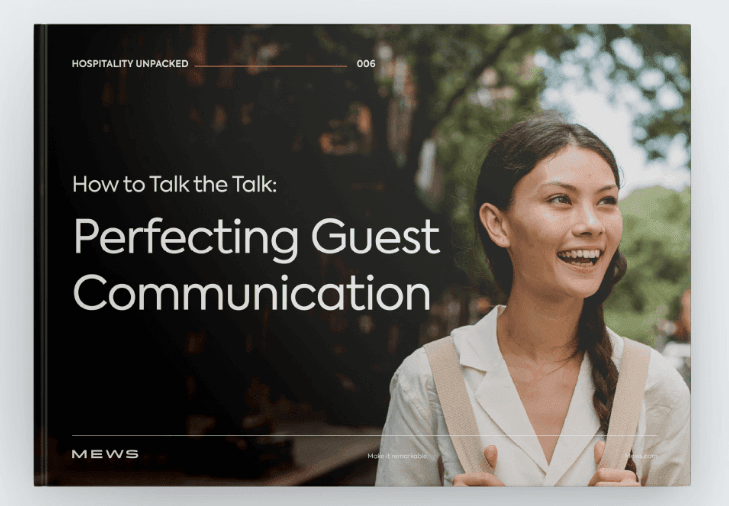Defining your hotel's tone of voice is one of the most strategic decisions you need to make. It ties directly into your marketing strategy by determining how your brand communicates a unique value proposition.
While it may seem like an easy choice, your tone of voice can make guests make conscious – or even subconscious – decisions about whether they want to stay at your hotel. It's all about representing your brand to the world, so keep reading to get the best tips on defining a tone of voice.
What to consider when determining your hotel’s tone of voice
Your choice of words can help define your hotel, build relationships with new and existing guests, and encourage people to book a room at your place. Here's what to consider when choosing your hotel's tone of voice.
It’s all about consistency
Consistent messaging throughout the buyer journey keeps your brand recognizable across channels. It means that the same copywriter prepares all your marketing materials. In other cases, you'll have a brand book that closely defines words, values and imagery in all your communication.
Another vital step is to define your buyer persona. Creating messaging becomes much easier when you know who you're talking to. Connecting with someone over 60 requires using different words than for Gen Z. For the sake of consistency, think about what you're trying to achieve through your communication beyond sales.
Find out 6 ways to improve hotel guest communication.
Define your buyer persona
Want to stay consistent in your choice of language throughout the buyer journey? Create buyer personas. Consider who you want to reach and conduct market research to identify your target audience. Once you've defined your ideal customer profile, give each persona a name and a picture. Define their challenges, a.k.a. "pain points," and needs.
Now, think about how your brand can solve their problems. Imagine you want to reach a financially comfortable millennial looking for exciting experiences. That person likes to spend money at Michelin-starred restaurants and values hotels with added luxuries.
Your messaging aimed at this buyer persona should include added services like spa and room massages. You'd also want to communicate restaurant pop-ups organized during their stay and mention the food tours your hotel offers. You're not just listing services – your choice of words will convince this guest it's all about them. Personalization, after all, is the future of the hotel experience.
Attribute human values to your brand
Having human values helps your brand be more relatable. If you'd like to be featured on the list of "places to be," implement traits like extroverted, fun, trendy and outgoing into your brand's tone of voice. Define your hotel's personality and then think about how such a person would communicate – this contributes to coherent messaging.
Read more about how to develop an effective brand strategy.
Your audience matters
Another factor to consider when developing your hotel's tone of voice is the audience. We've covered buyer personas – they help you better address your guests' pain points, preferences and needs. You'll also need a global strategy to capture brand values that resonate with all your buyer personas.
To do that, use a Venn diagram and see where your unique audiences intersect. You can also dive deeper into data to get a clearer idea of your current hotel client profile and make it easier to create audiences and speak to them.
Benchmarking is key
Do you know who your main competitors are and how they communicate? By defining your competitive set, you can easily monitor what they're doing and try to do it better. Make sure to choose competitors with similar attributes, locations, target guest profiles and types of hotels to ensure a straightforward comparison.
As a part of the research, sign up for their newsletters, visit their websites and blogs and study their brand personality. Then, ensure your brand messaging is unique and convincing enough to encourage guests to choose your hotel instead.
Conclusion
We've discussed the five factors to consider when defining your hotel's tone of voice. Keep focused on your target client profile – who you're communicating with and their needs and challenges. Next, identify your competition and research their communications while keeping your brand relatable and personable. The right tone of voice will help you create a unique brand that consistently outshines the competition.
Download our guide Perfecting Guest Communication

Discover the art of refining your guest communication across various channels, and you can enhance loyalty and ultimately achieve a higher lifetime value for guests.
Written by

Eva Lacalle
Eva a plus d’une décennie d’expérience internationale dans le marketing, le marketing numérique, la communication et l’événementiel. Lorsqu’elle ne travaille pas, elle aime surfer, danser ou explorer le monde.









